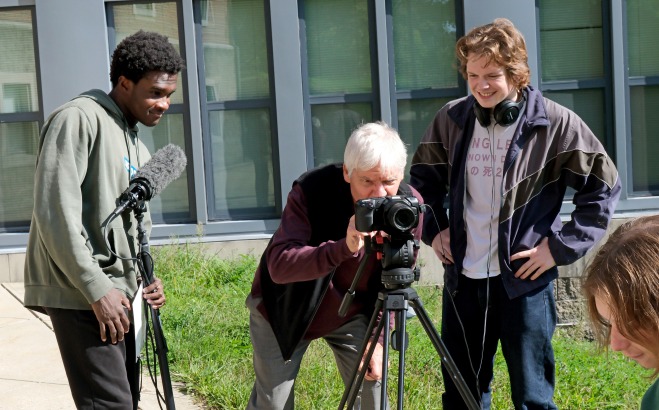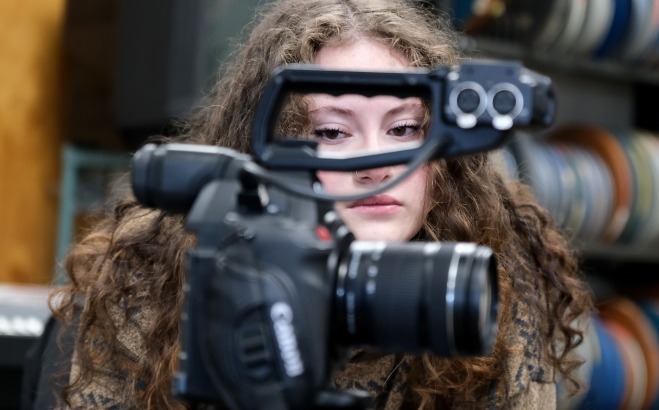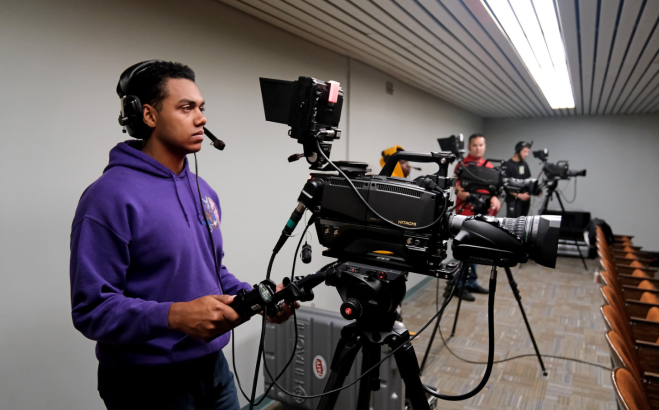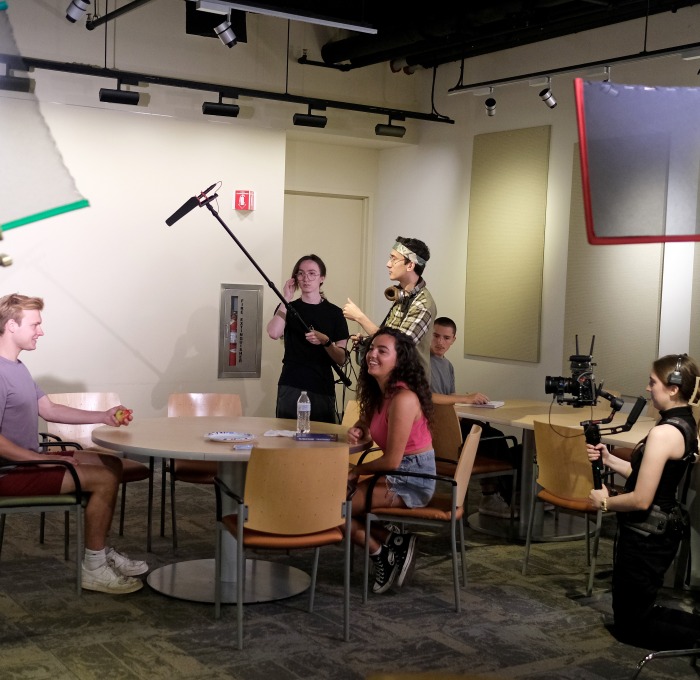
In Short
The Film and Video Production concentration is an immersive, hands-on, program that provides students with a wide range of creative and technical skills to meet the demands of the modern film, broadcast and streaming industries.
Projects We've Worked On


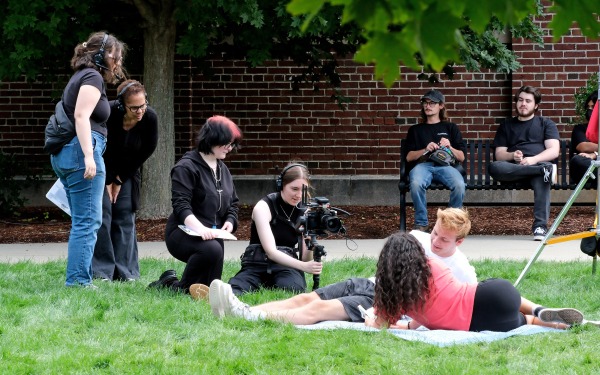

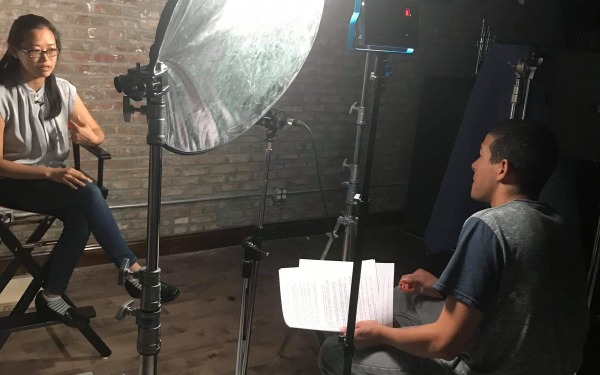
The job growth outlook for film and video editors through 2033 is 3%, with 85,400 new jobs in the field. This comes with a median annual wage of $71,000.*
Program Overview
The Film and Video Production concentration is one of the largest film and video programs in New England, providing a wide range of production coursework, from directing and producing to cinematography, editing, sound and scriptwriting. Students can choose to focus on either script based narrative or documentary or opt to pursue both. Students have access to industry standard camera, lighting, and audio recording systems, as well as, extensive training with professional editing, VFX, graphics, sound mixing, and post-production software and workflows. Students work individually or in collaborative teams to create film and video content starting in their first year. In the final semester, students gain professional industry experience in a full-time internship in New England, New York, Los Angeles, and other major film and broadcast markets.
All students have access to a wide range of industry standard cameras, lights, audio gear and post-production facilities. Within the concentration, students work both collaboratively and individually on a multitude of projects. In their final semester, all eligible students gain professional industry experience in a full-time internship. This can be locally, in Los Angeles, New York or elsewhere.
Porcelain
A short narrative film about a young girl struggling to come to terms with her blood disease while trying to decide if her freedom is worth dying for. "Porcelain" was written and directed by Sara Prygocki. This script won the LaCoy Production Fund script competition at Fitchburg State. It was later featured in the "Indie Short Fest" at the Los Angeles International Film Fest and the Studio City Film Festival.
Project Puffin
A short documentary created by students Vanessa Kahn and Kylee Acevedo. Take a trip off the coast of Maine and visit the country’s only colony of Atlantic Puffins. Follow these pint-sized seabirds across the island of Eastern Egg Rock, where researchers and interns work to continue to preserve this species in an effort which is forty-four years in the making. It won the Online New England Film Festival Audience Choice Award.
Want to watch more student created films? Watch Documentary Highlights and Narrative Highlights on Vimeo.
The film equipment and editing labs were very easily accessible to students, which wasn’t the case at the first university I attended. This was a major factor in my decision to transfer. Also, smaller class sizes allowed me to have better relationships with my professors, which is extremely important in something like film/video.
Experiential Opportunities and a Look Inside the Courses
Internships
Visions
Study Abroad
Intro to Film and Video
Film Styles
Multi-Camera Television Production
Curriculum and Other Information
- BS, Film/Video Production Concentration, Communications Media - Program information from the University Catalog.
- Four-Year Plan of Study - Required and elective courses for program completion.
B.S. in Communications Media
- Students should demonstrate proficiency in the core tools and skills of their discipline.
- Students should be able to apply aesthetic principles to their work by developing and defending a portfolio that demonstrates craftship and meets professional standards for their discipline.
- Students should be able to explain how their work fits in the historical and theoretical context of their discipline.
- Students should apply core theoretical principles to the analysis and critique of media.
- Students should recognize and apply ethical perspectives to their work.
- Cinematographer
- Director
- Editor
- Film/Video Critic
- Grip
- Lighting Director
- Producer
- Videographer



